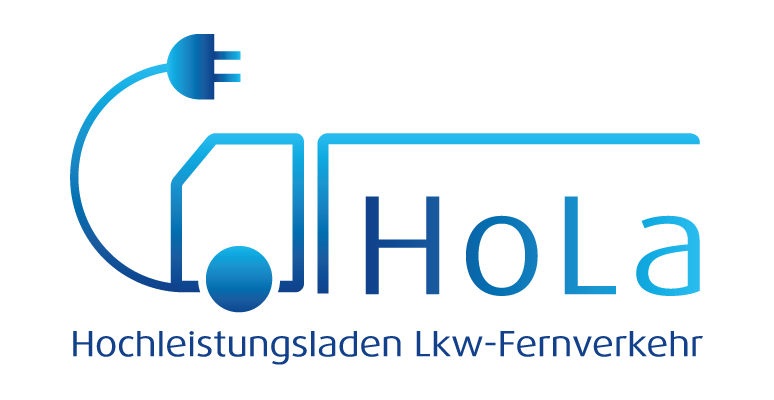 en-uklanguageSelector_en-uk
en-uklanguageSelector_en-ukMegawatt Charging Networks
Idea and purpose of MCS
From a technical and economic perspective, battery electric trucks (BETs) are a promising solution to reduce CO2 emissions in the transport sector. Today, the range of a BET is still lower than the range of a diesel truck. Additionally, there is only a limited period of time for recharging. For example, vehicles can be recharged during the legally required driving break. A truck driver in the European Union (EU) must take a break of at least 45 minutes after no more than 4.5 hours of driving. In 4.5 h, a truck can travel up to 360 km. For this distance, a truck needs approximately 400 kWh of electricity. The Combined Charging System (CCS) currently used for passenger cars with a typical output of 350 kW is not sufficient to recharge the necessary energy in significantly less than one hour. Therefore, the Megawatt Charging System (MCS) is currently being developed. MCS allows for charging with up to 3.75 MW (1,250 V and 3,000 A). However, charging stations for trucks will initially provide power of up to 1 MW. Higher power is intended for ferries or small aircrafts, for example. For slower truck charging, for example at the depot overnight, the CCS standard can still be used.
Further information can be found at https://www.charin.global/technology/mcs/
AFIR requirements for Heavy-Duty Vehicles (HDVs)
The European Union (EU) has defined minimum requirements for public battery truck fast charging networks for each EU member state in the Alternative Fuels Infrastructures Regulation (AFIR – Regulation (EU) 2023/1804). The following table summarises the requirements for the main European Highway network.

We analysed the AFIR requirements for public charging along the TEN-T road network by country. Please note that these numbers come with some uncertainty as the network lengths are subject to debate and change but also as the AFIR leaves some room for interpretation.


Role of HoLa in Germany
The project “High power charging for trucks in long-distance operation (HoLa)" is as an innovation cluster for climate-friendly truck drive technologies a demonstrator for high-performance charging infrastructure in real-life applications and can serve as a template for the future development of corresponding infrastructure. It is funded as part of the Electric Mobility funding framework by the Federal Ministry for Digital and Transport (BMDV) and supported by the German Association of the Automotive Industry (VDA).
The aim of the project is to construct, operate and accompany research for the first MCS for trucks in Germany. In concrete terms, two high power charging points using MCS will be installed at four locations in the HoLa project and tested under real logistics operating conditions. In a first step, two CCS charging points for trucks will be planned and built at four locations along the A2 between Berlin and the Ruhr region, making maximum use of the specification limits. Three locations directly at the motorway will be used, as well as two locations in logistics hubs (see graphic). These locations will be used for the early integration of electric trucks into logistics processes and as a test case for the novel fast charging of electric trucks as well as the collection of real usage experiences. At the end of the project, eight CCS charging points and eight MCS charging points will be available spread over five locations to support the real-life testing of this new system and form the basis for a nationwide expansion of this technology (see Figure 1). 12 consortium partners from research and industry plus several associated partners are involved in the project. Four truck manufacturers will supply a total of eight CCS and four MCS vehicles, operate them with the help of other partners and charge them along the route. The construction and operation of vehicles and infrastructure is accompanied by extensive research activities. The goal here is also to provide the blueprint for a nationwide expansion. Close consultation with the National Centre for Charging Infrastructure is taking place in the project. The findings will be used directly in the deployment of charging infrastructure for commercial vehicles, which is coordinated by the Centre. Furthermore, the HoLa project is accompanying the standardization of MCS.

Source: HoLa consortium

